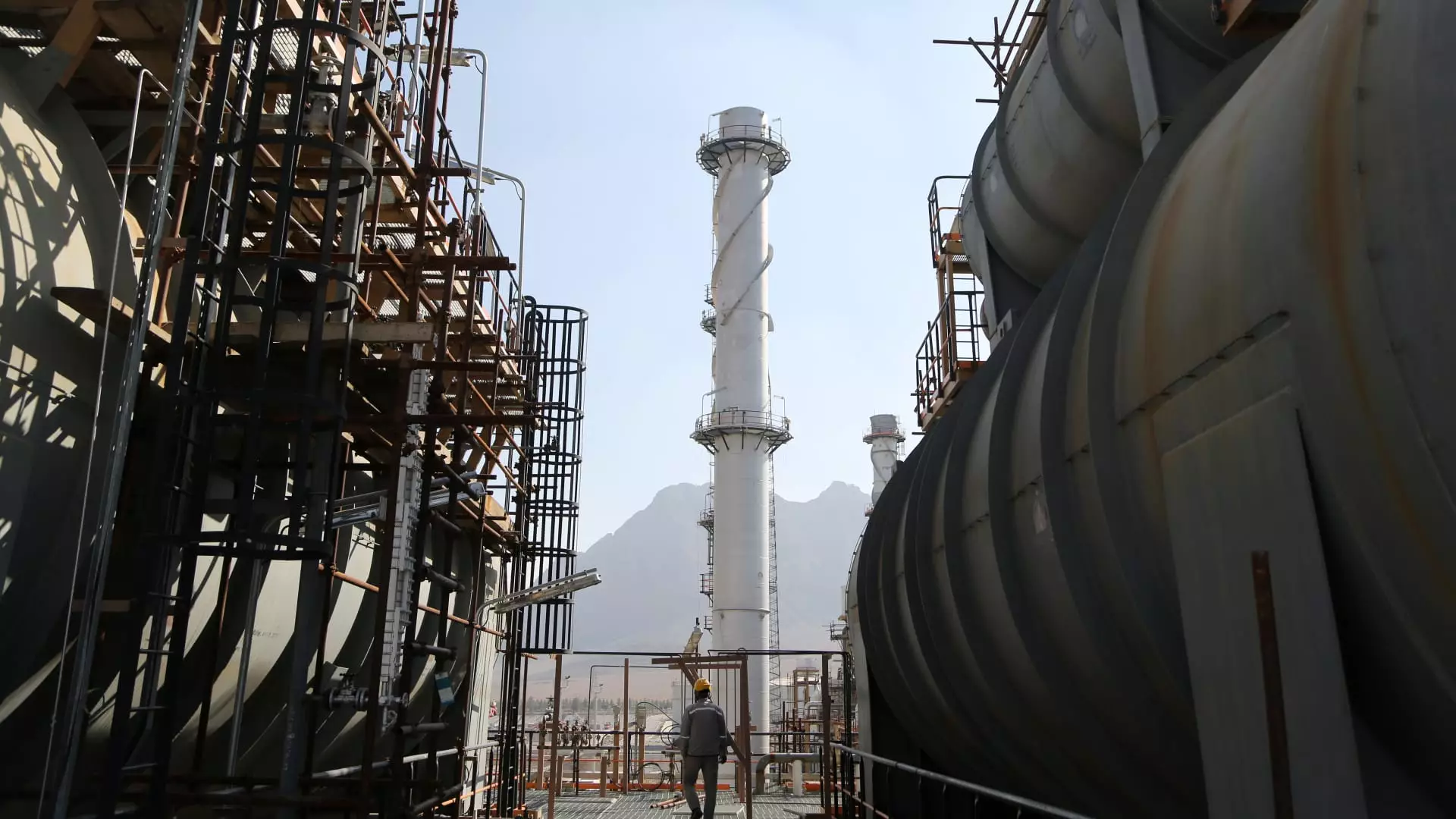The recent missile strike by Iran on Israel has raised considerable alarm among oil analysts and market watchers, marking a potential turning point in the ongoing geopolitical conflicts that have historically influenced oil prices and supply. Iran’s retaliatory action, prompted by the deaths of significant Iranian and Hezbollah leaders, signifies a troubling escalation. No longer are regional skirmishes and military positions being solely observed from the sidelines; a genuine threat to crude oil supplies appears imminent. This event, coupled with the ongoing conflict between Israel and Hamas, suggests that the stability of oil markets may be hanging by a thread.
Iran, being one of the leading producers in the Organization of the Petroleum Exporting Countries (OPEC) with a production volume nearing four million barrels per day, plays a critical role in the global oil landscape. Analysts are concerned that Israel’s potential retaliation could specifically target Iran’s oil infrastructure, further exacerbating the situation. This bleak scenario casts a looming shadow over oil supply, with forecasts indicating a possible disruption of up to 4% of the global oil market.
As observed by industry experts, such as Saul Kavonic from MST Marquee, the ramifications of these tensions on supply could lead to a resurgence of oil prices, potentially breaching the $100 per barrel mark again—a level not seen since the early days of the pandemic and subsequent geopolitical crises. A spike to such heights would signify a significant shift in both market dynamics and consumer behavior worldwide, indicating growing unease among buyers and suppliers alike.
The immediate market response following the missile strike reveals the reactive nature of commodities trading. In the wake of the Iranian attack, oil prices experienced a notable increase, with Brent crude climbing over 5% initially. However, this surge was followed by a slight correction, illustrating the volatile nature of the markets amid geopolitical uncertainty. Prices still saw upward movement, signaling trader sentiment shifting towards apprehension and caution.
As analysts and traders grapple with balancing these tensions against the backdrop of ongoing U.S. production and lackluster demand from China, the market appears to be in a state of flux. The interplay between supply, demand, and geopolitical risk is coming to a head, fundamentally altering the supply landscape and oil pricing mechanisms.
As Israel directs its military focus away from Gaza and towards Lebanon and Iran, the conflict enters a phase where energy resources become a key variable of consideration. Experts like Bob McNally from Rapidan Energy Group articulate concerns that retaliatory actions may result in disproportionately large responses from Israel, further complicating the oil supply chain.
This shift in focus underscores an essential truth: energy resources are becoming central to the conflict. Analysts are already predicting that the situation is likely to worsen before improvements are realized. The complexity of the peace process, coupled with heightened military engagement, means that the prospect of restoring stability to oil supplies is teetering on the brink.
With the risk assessment frameworks utilized by firms such as GeoQuant revealing heightened volatility in political risk scores, it is evident that the potential for further escalations remains high. The indicators suggest that future events could surpass the current crisis in both scale and impact. The interplay of various geopolitical factors makes it exceedingly difficult to predict outcomes with certainty, and this uncertainty translates directly into market instability.
The ongoing tensions stemming from the Israeli-Iranian conflict are poised to have far-reaching implications on global oil supply and pricing structures. As industry experts urge stakeholders to prepare for significant shifts, it becomes clear that the oil market is facing one of its most precarious moments in recent history. All eyes will be on this conflict as developments unfold, with the global economy hanging in the balance.


Leave a Reply